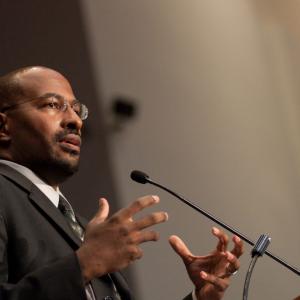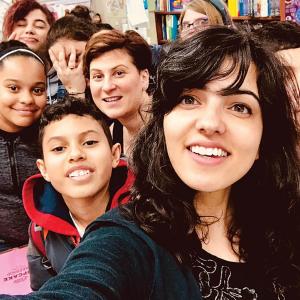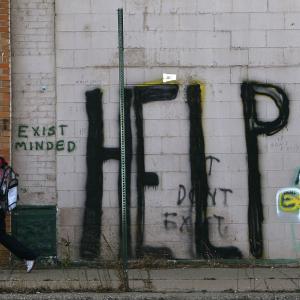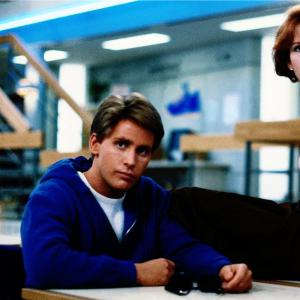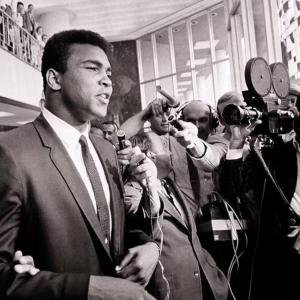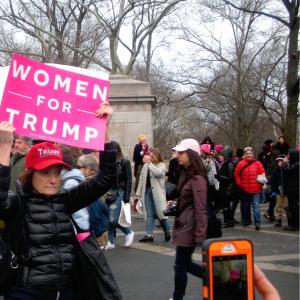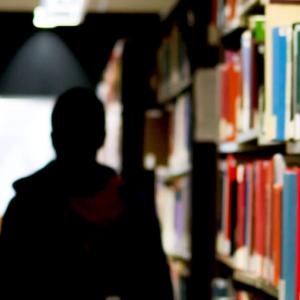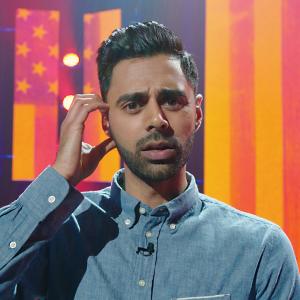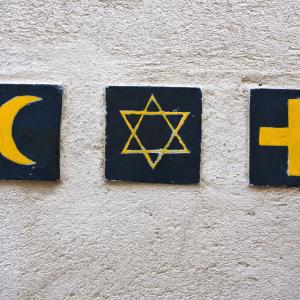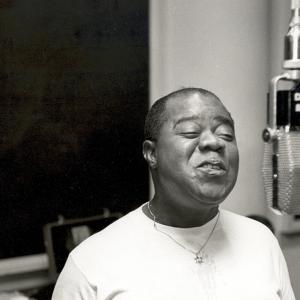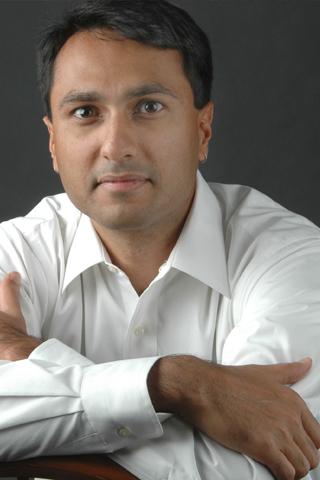
Eboo Patel is founder and executive director of the Interfaith Youth Core, a Chicago-based international nonprofit that promotes interfaith cooperation. His blog, The Faith Divide, explores what drives faiths apart and what brings them together. He is also author of Acts of Faith: The Story of an American Muslim, the Struggle for the Soul of a Generation (Beacon Press, 2007).
Posts By This Author
Van Jones’ Surprising Partnership With the Kochs
Progress needs concrete movement, not grand ideological gestures.
Van Jones could easily have been the Luke Skywalker of the resistance. His CNN comments on the night of the 2016 election, characterizing Trump’s victory as a “whitelash,” went viral. And he wasn’t exactly an unknown before that.
For many years he’s been one of the most highly respected progressive activists in the country, building institutions and leading campaigns around racial equity, criminal justice reform, and a Green New Deal (yes, he was on it before Ocasio-Cortez).
A Place for Us?
What diversity discourse in the Trump era commonly leaves out.
LAURA KIM TELLS an illustrative story in the Race/Related newsletter published by The New York Times about a white boss who responded to her request for promotion by saying, “You’re so good at what you do. I thought you wanted to stay in your position forever ... Normally, Asian women keep their heads down and stay very quiet.”
It is the kind of story that professional, middle-class Asian Americans are telling more and more these days. Stereotyped as determined and technically competent, but not especially creative, we might be the kind of people you’d want as your accountant or computer expert, but we are definitely not management material. In my experience, Kim’s story rings true, but it’s not the only true story about Asian-American experiences.
I think that’s one of the reasons I found Fatima Farheen Mirza’s debut novel, A Place for Us, about an immigrant South Asian Shia Muslim family in post-9/11 California, so interesting. As part of a South Asian Shia Muslim community myself (the Ismaili community), the various religious references (to Imam Ali and Imam Hussain, to the presence of the Quran as a protection) felt both familiar and comforting.
Equally familiar, if less comforting, were the family dynamics. The lives of the children were governed by rules written by religious tradition, maintained by family, and enforced by the broader community.
The kids largely viewed the white world outside the home as a place of freedom, a world where you could choose your own path of study, select your own romantic partner, and go to parties, all without the prying eyes of your parents and the wagging fingers of community members. At home, at the mosque, at Muslim events, you bore the burden of your tradition. Your words and deeds represented your parents at all times.
By Every Means Necessary
The oppressed don’t need critical theories of injustice—they need a way out.
MY FIRST JOB out of college was teaching at-risk black and Puerto Rican kids in an alternative high school setting. At 20 years old, fresh from a critical theory-oriented undergraduate curriculum, I basically taught what I had read in college: bell hooks, Audre Lorde, Paulo Freire, Noam Chomsky. I was thrilled to do it. After all, in front of me were the people that I had studied in those critical-theory classes—“the oppressed.” And here I was to deliver liberation.
“Is this going to get me my GED?” a skeptical student named Angel asked me at one point. “If I pass, I get $1 an hour more at Cub Foods, and my girlfriend is pregnant, so, you know, I gotta get that. I ain’t slanging [dealing drugs] no more.”
I wanted to tell Angel that I was providing him far more than material gain. I was the bearer of soul freedom.
When Joel, the math teacher at the school, caught wind of what I was doing, he about put me up against the wall. “Are you crazy?” he said. “You walk in here from your privileged life and start delivering oppressive-systems mumbo jumbo to kids who need to learn how to read? Teach them that they need to work their butts off to pass the damn test. Stop giving them an excuse to blame the system.”
It is one of the most important lessons I’ve ever gotten in my life: People closest to a tough situation usually want to find the most direct way out, not the most ideological critique of injustice.
Reach Out and Build Bridges
How do we build a better world, not just resist the old one?
DOING DIVERSITY work in the Obama era felt like being not only part of the zeitgeist but the telos. History was bending toward an interfaith, multicultural future, and we were part of it. There was a long way to go toward the finish line, but the road was downhill and paved and our leader knew the way. There might be some disagreements in emphasis and in tactics, but generally speaking we believed we were heading to the same place.
Boy, how things have changed, both in the White House and in how we see the bend of history. The changes in the political sphere have had important reverberations in the diversity movement. It feels like there are two schools of diversity work these days.
On the one hand there is the Protect and Resist School. This type of diversity work emphasizes creating safe spaces for marginalized people (women, people of color, immigrants, LGBTQ folks, Muslims) and resisting the power structure in any way possible, from furious tweetstorms to Black Lives Matter protests to shouting down conservative speakers on campuses.
“We tried the Martin Luther King Jr. way with Barack Obama,” this school seems to say, “and you racists rejected him as a radical when really he was as moderate as any human being God ever created. You have the weapons of power; we have the weapons of resistance. To paraphrase James Baldwin and the Bible—no more water, the fire this time.”
Bunker Busting
Am I the only one? Will it always be like this?
ISSUES RELATED to race were at the center of my growing political consciousness when I was an undergraduate in the 1990s. Two were especially impactful: racism in the criminal justice system and racism in cultural representation.
The Rodney King beating happened when I was in high school, and there was almost nothing said about it in the largely white, professional, middle-class suburb where I grew up. In fact, the remarks that I do remember were sympathetic to the police.
The crew I ran with in college changed all that. They raised questions such as: Do you think if the officers were black and the person being beaten was white that the national conversation would be the same? Do you think that the continuous portrayals of black people as criminals had nothing to do with the acquittal of the police officers?
Those kinds of questions shifted my worldview—for the better, I believe. Given that, it should come as no surprise that the news stories I paid the most attention to in 2015 were about issues of race, the criminal justice system, and cultural representation. Basically, I was consumed with #BlackLivesMatter and #OscarsSoWhite.
Parenting in the #MeToo Era
Isn’t there more than a little hypocrisy among progressives on the subject of the pop culture we love?
MY OLDEST SON is about to turn 11, which means he is old enough to both recognize and call out the hypocrisies of the adult world. Here are two recent examples:
- While watching an NBA game, he says that adults are always saying that boys shouldn’t judge girls by their looks, but what else are you supposed to be doing while cheerleaders are doing their moves? And what do cheerleaders have to do with basketball anyway?
- As my wife and I are singing along to old-school hip-hop in the car, he says that if boys are not supposed to talk about girls’ body parts in ways that make them feel like objects, why is it okay for this guy to sing about liking “big butts”? And why is it okay for us—his parents—to be singing along?
These questions make my wife and me squirm. Generally, we try to face things square on, but on the subject of why we tolerate certain messages in the pop culture that we like, we go mum.
But something in Molly Ringwald’s New Yorker piece this spring about watching her ’80s-era Brat Pack movies with her then 10-year-old daughter made me think more deeply about the whole dynamic. Ringwald writes about how uncomfortable she was being confronted by the racist and sexist themes in those movies. The horribly racist caricature of Long Duk Dong in Sixteen Candles. The under-the-table panties scene in The Breakfast Club. The casual ways boys in those movies talked about trading drunk girls as if it were normal.
Campus Diversity in the Era of Trump
The human heart and the American promise is wider than we ever imagined.
SOME TIME ago I took a long walk with a favorite professor of mine from the University of Illinois. I talked about how I’d turned my undergraduate activism in the campus diversity movement into a full-time career, and he told me an interesting story about identity.
The week before, he had needed to shift his 9 a.m. class to 8 a.m. because of a mid-morning appointment. He promised his students he’d bring in Panera to make up for dragging them out of bed so early. One of his students, a white kid from a rural area in Illinois, had asked, “What’s Panera?”
Everybody else in his highly diverse class knew what Panera was, he stated matter-of-factly, making that white student’s distinctive experience all the more striking. “Shouldn’t any campus diversity movement that takes identity seriously be open to her uniqueness?” he asked me.
I stifled a laugh and turned the conversation to another dimension of identity, one that I felt really mattered. Surely my professor friend knew that the assigned role of white people in campus diversity programs is to listen to the bigotry that people of color have experienced and apologize for the ways they have benefited from racist systems. The only time they are allowed to speak proactively is if they occupy one of the other “preferred” identities—if they are gay, or female, or have recently converted to a minority religion.
In the weeks since Donald Trump was elected president—in between being scared out of my mind about the violent attacks on ethnic and religious minorities in America (my kids’ names are Zayd and Khalil)—I’ve thought about that rural white student. The place she’s from voted overwhelmingly for Trump. I wonder if she did. I wonder why I never wondered much about her before.
Some Thoughts on Identity Politics
Elements of identity politics may have advanced dogmas that undermine the very values that undergird the movement.
I WAS ONCE on a panel with a counselor who proudly claimed her identity as a woman as the reason for her feminist approach to counseling. Toward the end of the discussion, she told the story of a client who frustrated her. A highly educated middle-aged mother of three, this woman (the client) had stepped off the career track to take care of her children. The children were now grown, and she had come to counseling to think through her next steps. My fellow panelist encouraged this client to claim her identity powerfully and express it in public fiercely. The client liked this idea. Some weeks later, she told her counselor that she had gone back to the Catholic church of her childhood and started to attend pro-life rallies.
“That wasn’t what I meant when I told her to claim her identity and express it in public,” the counselor deadpanned, and the liberal university audience laughed along with her.
The exchange left me feeling queasy. Here was a counselor purporting to empower the identity and expression of a client in a period of transition and then being disappointed that her client hadn’t chosen the identity and expression the counselor desired. And the public affirmation of the counselor in a room full of people who clearly shared her worldview felt doubly unsettling.
Can Civil Religion Save Us?
The 'cohesive sentiment' of civil religion cannot create cooperation in a diverse nation.
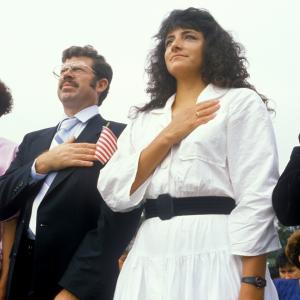
Joseph Sohm / Shutterstock.com
IN HIS RECENT book American Covenant, Philip Gorski writes, “To be part of a tradition is to know certain stories, read certain books, admire certain people, and care about certain things. It is to knowingly enter into an ongoing conversation, a conversation that precedes one’s birth and continues on after one’s death.”
The civil religious tradition was first invoked regarding the United States by sociologist Robert Bellah in 1967. Bellah spoke of it as the “religious dimension” of the “political realm” and the “founding myth” of our national community. It stands separate from people’s traditional faiths but draws freely from religious language to sacralize national symbols.
True Heroism
Sometimes refusing to go to war and choosing to fight bigotry on the home front is the most American thing of all.
THE ATTENTION generated by Captain Humayun Khan’s Iraq war activities (as related by his father, Khizr Khan, at the Democratic National Convention) is not the first time that a military story was used to try to tamp down prejudice against U.S. Muslims. In 2008, Gen. Colin Powell responded to the charges about Barack Obama being a Muslim by saying “What if he is?” Powell then cited the image of a mother hugging the gravestone of her American Muslim son at Arlington Cemetery as an illustration of Muslim contributions to the nation.
I respect Captain Khan’s military service. Yet I can’t stop thinking about an issue that his father reportedly raised with him when he was leaving for Iraq: Are you troubled at all by this war? Lots of Americans were, concerned both about the questionable evidence used to justify the war and the many lives that were sure to be destroyed during it.
As most soldiers would, Captain Khan stated that decisions about which wars to fight were above his pay grade.
But it does raise a question for those American Muslims who were disturbed enough by the contours of the Iraq war to withhold their support: Are there ways other than going to a war you don’t believe in to express your patriotism and be welcomed by your country?
I’d like to think that there are, and that American Muslims have in fact demonstrated them. Take Salman Hamdani, who was a young American Muslim emergency medical technician on his way to work on 9/11 when he saw the planes fly into the buildings. He rushed over to the site of the attacks to help whomever he could, and died in the rubble there. The police investigated him for possible ties to terrorism because of his Muslim faith and Pakistani heritage.
Shouldn’t sacrificing your life to rescue others merit the embrace of others in your country, or at least shield you from their suspicion?
The 'Roadkill' of the Islamophobia Industry
Trump's 'Muslim ban' institutionalizes America's majority anti-Muslim sentiment.

arindambanerjee / Shutterstock.com
IN HIS BOOK The Islamophobia Industry, author Nathan Lean points out that two months after the attacks of 9/11, Pew research showed that 59 percent of Americans had a favorable view of Islam. That was a 14-point increase from a similar poll taken in March 2001, several months before the Twin Towers fell. This was likely because U.S. leaders, including President George W. Bush, stated publicly and repeatedly that Islam and Muslims were not to blame for terrorism—terrorists were.
By October 2010, nine years later, only 39 percent of Americans expressed a favorable view of Islam.
What accounted for this dramatic drop? Yes, Muslims committed 11 terrorist attacks on U.S. soil during that period, attacks that tragically took the lives of 33 people, but this hardly seems overwhelming in a nation that experienced 150,000 murders in the same time span. Lean concludes that the “spasm of Islamophobia that rattled through the American public is the product of a tight-knit and interconnected confederation of right-wing fear merchants ... the Islamophobia industry.”
The controversy the “industry” generated around Cordoba House (the original name for what became known as “the Ground Zero Mosque”) was its first taste of sustained mainstream public influence, but it would not be the last. A few years later, many denizens of this world were either in or orbiting the Trump campaign and later his White House. “Fringe, Sinister View of Islam Now Steers the White House” was how a New York Times headline described it.
Trump himself appears to embrace this worldview. During the presidential campaign, he repeatedly made comments such as “I think Islam hates us” and threatened to enact this worldview into policy.
The Trouble with Identity Politics
Do we call into question the logic model of identity politics?
A RECENT Washington Post article describes a group of 200 people of color rallying in front of the White House on immigration policy. They carried signs about President Trump and chanted slogans related to the Dreamers. Can you guess the content of their signs and slogans?
The article explains that the chants at the rally included “Indians Love Trump,” and the signs called for legislative movement on DALCA, not DACA. (The “L” stands for legal, and speaks to the residency situation of this group of largely highly educated tech workers.)
This is a group that likes the Trump administration’s immigration agenda. Actually, based on the article, it appears that they like a lot of policies being advanced by the Trump administration.
When is the last time that you associated a group of people of color protesting outside the White House with support for President Trump? Well, there they were.
How White Privilege Worked for Me
My parents didn't come right out and say it, but what they meant was, "You are not white."
BY ABOUT SIXTH grade, a set of kids in the professional middle-class suburb where I grew up stopped doing homework, or really much work at all. They’d goof around in everything from math class to gym period. Getting average grades or being sent to the principal’s office for misbehavior didn’t seem to bother them that much. And their parents seemed to greet it all with a shrug.
It looked like good fun to me, so I figured I’d give this not-giving-a-damn thing a try. My parents greeted my Bart Simpson attitude with something stronger than a shrug.
I remember their fury after a school meeting where the teacher must have explained that my grades had fallen because I spent class time chatting with friends rather than focusing on worksheets. Right before the hammer came down, I attempted a weak protest: “But none of the other kids are doing work in class either,” and ticked off a set of names that my parents knew.
“You are not like them,” came the stern response.
This confused me. I thought I was like them. I played sports and video games, watched MTV and worshipped skateboarder Tony Hawk, just like all the other 12-year-old boys.
“If you are not head-and-shoulders above the next candidate in a hiring process,” my mother sternly said, “they will not give you the job.” She repeated: “You are not like them.”
The Poison of Prejudice
Prejudice does internal damage to identity that is hard to see.
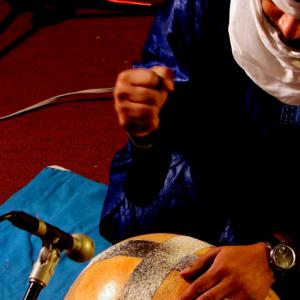
Tinariwen band member performing at a public radio station./Image via Flickr, Deirdre Hynes
A DEMOCRATIC SOCIETY relies on the contributions of its citizens in everything from launching technology companies to managing the PTA. Discrimination against an identity group in a democratic society is not just a violation of its dignity, it is a barrier to its contribution.
The contributions of Muslims to American civilization are impressive and wide-ranging, captured well in the speech President Barack Obama gave in Cairo on June 4, 2009. “American Muslims have enriched the United States. They have fought in our wars, served in government, stood for civil rights, started businesses, taught at our universities, excelled in our sports arenas, won Nobel Prizes, built our tallest building, and lit the Olympic Torch.”
But the atmosphere of Islamophobia in the Trump era has created special hardships for Muslims, a dynamic that hurts both the Muslim community and the nation to which they seek to contribute.
Is Islam an 'American Religion'?
A scholar and a recent Netflix comedy both tackle the question.
TUNISIAN FRENCH scholar Nadia Marzouki published a book in France in 2013 with the title L’Islam, une religion américaine? In 2017, the book was updated with the events of the Trump campaign and additional analysis and republished in the United States as Islam: An American Religion.
Somehow along the way, as religious studies scholar Winnifred Fallers Sullivan notes, the question mark was dropped. The reasons are not entirely clear. Did something dramatic happen during those four years, not just to Muslims but, more important, by Muslims? Was it a marketing gimmick by the new publisher, Columbia University Press?
Either way, it raises a fascinating question: What does it mean to be an American religion, and can Islam in America be said to constitute one?
Why Muslim-Jewish Cooperation Matters for America
Imagine receiving this message on your voicemail: “Dear Mr. Gonzalez, we regret to inform you that your heart surgery has been canceled. The medical professionals scheduled to perform it, Doctors Sarna and Latif, have discovered that they have serious disagreements about Middle East politics. Consequently, they are refusing to work together. We will do our best to find you other doctors, before your condition becomes fatal.”
Seem far-fetched? In my mind, it is the logical outcome of the manner in which many Jewish and Muslim groups have chosen to engage each other in recent years. Or, rather, not engage.
How to Live in a Diverse Democracy
Healthy, diverse societies do not magically appear
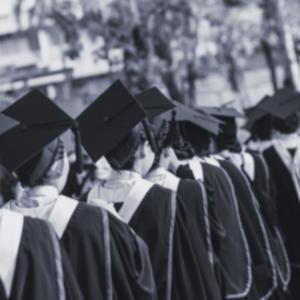
Rittikrai / Shutterstock
I SPEAK ON about 25 college campuses a year, which affords me a front row seat for current trends in identity politics. One of the things I’ve noticed is that when people say they are engaged in “diversity work,” what they often mean is that they are busy mobilizing their preferred identity groups toward their approved politics. The main role they see for those on the other side is to be defeated.
But the real challenge of living in a diverse democracy is not dealing with the differences you like, it’s working with the differences you don’t like.
In his excellent new book, Confident Pluralism, John Inazu, a professor at Washington University Law School and board member of InterVarsity Christian Fellowship, takes a long look at how to do this, with special attention to religious differences.
Disagreements with regard to religious matters are some of the most challenging ones around. That’s because religion is about ultimate concerns. Not only do faith traditions deal with issues—creation, salvation, morality, human purpose—that are inherently ultimate in nature, they imbue matters that may otherwise be viewed as mundane with a sense of ultimacy. That’s not just a random group of people over there, that’s the church, or the umma. That’s not just any old piece of land, that’s the place where the Second Temple once stood, or where Lord Rama was born.
Inazu opens his book with a sobering quote from the French philosopher Jean-Jacques Rousseau: “It is impossible to live at peace with those we regard as damned.”
He is reminding us right off the bat that the stakes could not be higher.
American Songs, American Stories
Out of respect for the role the Karnofskys played in his life, Louis Armstrong wore a Star of David until he died.
IN THE EARLY 20th century, a group of esteemed scholars gathered in a little northeastern pocket of their own making and concerned themselves with the question of finding a distinctly American music. Where was this music? How might it develop? Could there be, out there somewhere, an American Bach?
They looked far and wide in the places that they knew; they searched for faces that they might recognize; they listened deeply in the idioms with which they were familiar. And they came away disappointed.
Jazz critic Gary Giddins chortles as he recounts the tale, pointing out that if these American Brahmins had simply deigned to take a train south from Boston to New York City, and stepped into the Roseland Ballroom on a Thursday night, they would have experienced the American Bach, Dante, and Shakespeare all rolled into one: Louis Armstrong.
Born to a 15-year-old who sometimes worked as a prostitute, raised in a New Orleans neighborhood so violent it was known as “the Battlefield,” sent to a juvenile detention facility at 11 for firing a gun into the street—his early years would surely put him on the pipeline to prison today.
Had that occurred, the distinctly American music that Louis Armstrong created might never have happened. The American songbook, as we know it today, simply would not exist.
Faith, Fear, and Courage
We need faith-inspired courage to stand up to our enemies when they are strong and our friends when they are wrong.
WHEN IT IS prayer time, Rami Nashashibi prays. His Muslim faith is the core of his life and work, inspiring the two decades of advocacy he has done on behalf of the poor and marginalized on the South Side of Chicago.
But when prayer time arrived on an unseasonably warm day in December, Nashashibi paused. It was just days after the terrible terrorist attack in San Bernardino, where extremists calling themselves Muslims murdered 14 people and injured many more. Nashashibi was in his neighborhood park with his three kids, and he found himself suddenly struck by fear at the thought of praying in public and therefore being openly identified as Muslim at a time when so many equated that term with terrorist.
That neighborhood park happened to be Marquette Park. Fifty years earlier another man of faith stood not far from where Nashashibi was standing, and he too felt fear. That man was Martin Luther King Jr. He had come to Chicago in 1966 to raise awareness about discriminatory housing practices on the South Side. His march through Marquette Park was met with racist sneers and vigilante violence. A brick thrown his way actually hit him in the head and brought him to his knees.
The Gift of Small Things
One of the most poignant moments was their tearful goodbye with their evangelical Christian neighbors.

Zurigeta / Shutterstock
IT IS A SAD truth that presidential election seasons widen our divisions. The candidates seem to view veering toward the extremes as a mark of “patriotism.” That ethic gets reflected in our broader political discourse.
This is dangerous stuff in a diverse democracy. The heart of the American idea is that different groups can advance divergent interests and still collectively see themselves as one people. Princeton philosopher Jeffrey Stout puts it this way: “[Democracy] takes for granted that reasonable people will differ in their conceptions of piety, in their grounds for hope, in their ultimate concerns, and in their speculations about salvation. Yet it holds that people who differ on such matters can still exchange reasons with one another intelligibly, cooperate in crafting political arrangements that promote justice and decency in their relations with one another, and do both of these things without compromising their integrity.”
He calls this process of relating across differences building a “civic nation.” In the pursuit of that high value, here is a personal story of building relationships across deep religious differences.
MY WIFE’S PARENTS are moderately observant Muslims. For many years, they lived in a Chicago suburb next to an evangelical Christian family who homeschooled their three girls. At first, the two families were pleasant to each other but had little contact. Things changed when, one year when my wife and I were visiting for Eid prayers, the girls next door poked their heads over the wooden fence and invited our boys to come over and play. Our boys whooped happily and went.
This of course meant all of us adults trooped across the driveway and properly introduced ourselves to the neighbors. We collectively overheard a fascinating interfaith conversation in the backyard, our oldest son Zayd explaining that he got out of school today to celebrate Eid, a holiday that Muslims believe in because we believe in the Prophet Muhammad and the Quran. The neighbor’s oldest daughter responded that they go to school at home so they can follow a Christian curriculum because they believe in Jesus and the Bible. We adults shifted uncomfortably as we listened, knowing full well the doctrinal issues at stake. “Looks like someone learned something in religion class this week,” somebody commented, allowing nervous laughter to break out.
